Voice referendum: Truth-telling for Albanese as voters deliver defeat
Anthony Albanese will reaffirm his commitment to reconciliation while pursuing treaty through a Makarrata commission.
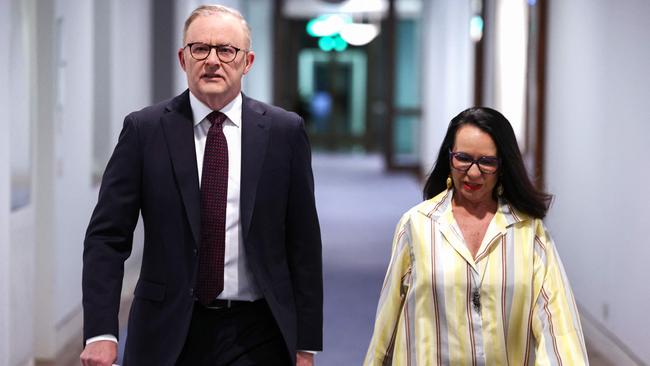
Anthony Albanese will reaffirm Labor’s commitment to advance reconciliation while pursuing treaty and truth-telling and reset the government’s focus on cost-of-living pressures and national security, after his $365m voice referendum was torpedoed by more than 60 per cent of voters.
The Prime Minister will re-engage with Indigenous leaders following a week of silence on new measures to close the gap after a majority of Australians in every state rejected Labor’s referendum to constitutionally enshrine a voice advisory body to parliament and executive government.
As Mr Albanese and Yes23 campaigners kept low profiles on Sunday following the heavy defeat, Deputy Prime Minister Richard Marles declared the government remained committed to establishing a Makarrata commission to supervise treaty-making and truth-telling.
Labor MPs, Yes campaigners and government-appointed constitutional expert group member Greg Craven sheeted blame for the referendum loss on Mr Albanese, Indigenous Australians Minister Linda Burney and Yes23 for failing to provide more detail, appealing too much to inner-city elites and rushing the vote without ample consultation.
While senior ALP and Liberal strategists believe that political damage inflicted on Mr Albanese and the Labor brand was unlikely to show up immediately, the government is under pressure to focus on priority issues for households and businesses.
Mr Marles on Sunday ruled out another attempt at constitutional recognition but reaffirmed the government’s commitment to the Uluru Statement from the Heart in full, which asks for voice and a Makarrata commission to oversee treaty and truth.
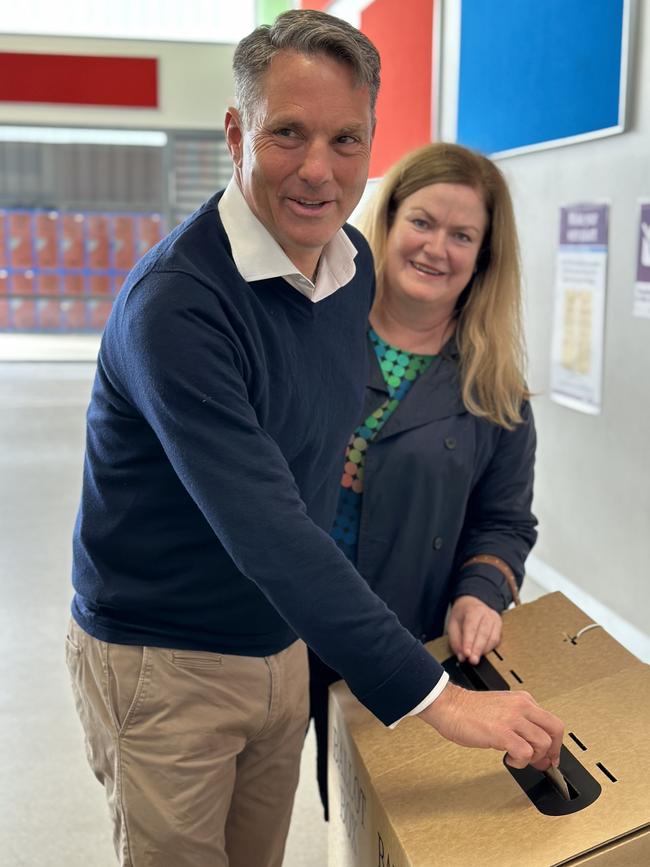
The Albanese government, which ahead of last year’s election pledged $27m to establish a Makarrata commission, has already spent $900,000 of the $5.8m set aside in Labor’s first budget for the treaty and truth-telling body.
Despite voters in Queensland, South Australia and Tasmania delivering No votes of 68.8 per cent, 64.5 per cent and 59.5 per cent, premiers in those states on Sunday vowed to push ahead with state-based treaties and voices to progress reconciliation. At the close of counting on Sunday night, the national vote showed No leading Yes by 60.6 to 39.4 per cent.
Millions of voters in regional Australia and western Sydney emphatically voted No in key Labor electorates, including seats held by cabinet ministers.
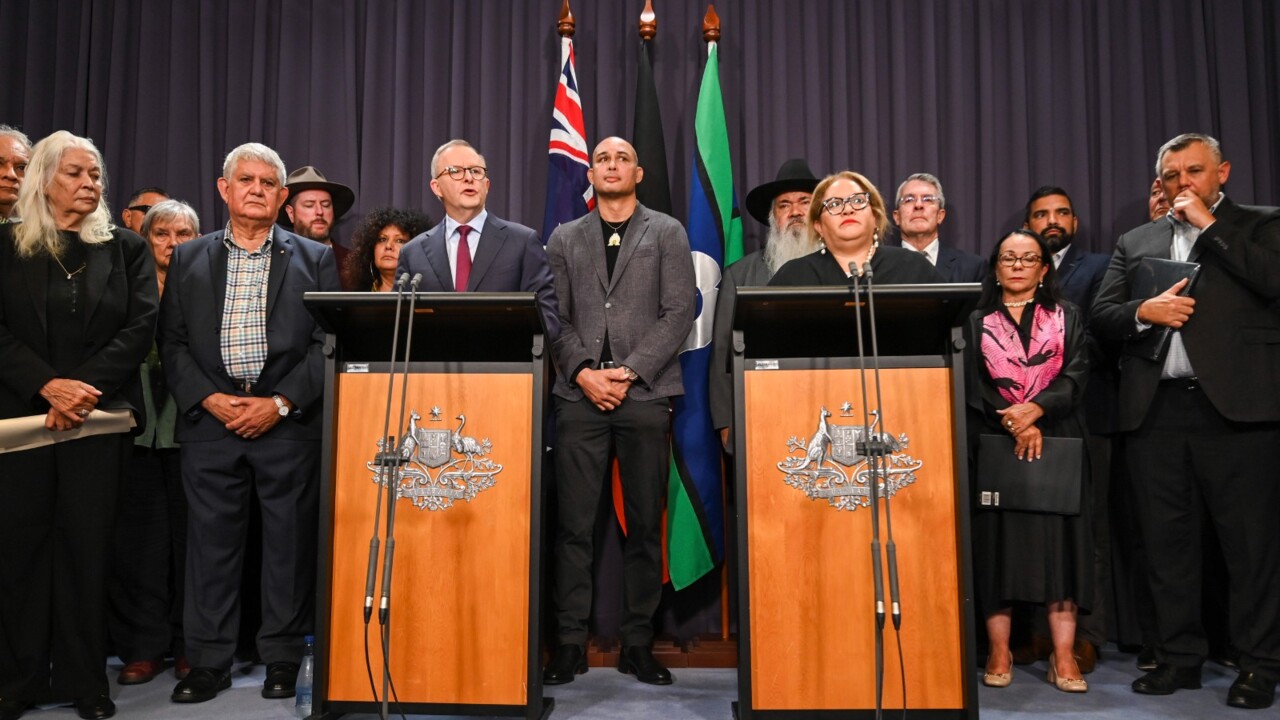
Only one of 57 Coalition seats – Bradfield in Sydney – was on track to return a Yes vote. All seven teal seats won from the Liberal Party at recent elections, including Warringah, Wentworth, North Sydney, Kooyong and Goldstein, returned Yes votes.
Amid soul-searching in Labor ranks, Mr Albanese is preparing an immediate pivot to core policy issues including the economy, national security, advancing reconciliation, energy, climate change, education, skills and manufacturing.
The Australian understands Yes23 campaigners had known for at least three weeks that the referendum would go down on Saturday night but were shocked by the scale of the loss and massive swings to No.
Ahead of parliament resuming and Mr Albanese convening his first cabinet and caucus meetings in Canberra this week following the defeat, and parliament resuming, a senior Labor MP said the referendum was emphatically rejected because of a “lack of information” provided by the government around how the voice advisory body would work.
Labor MP Mike Freelander, whose southwestern Sydney electorate rejected the voice, accused the Yes campaign of being too focused on “inner-city elites” and cautioned that the Albanese government was out of touch with outer-suburban seats.
Another Labor MP called for the resignation of Ms Burney, who on the weekend pledged to unveil new commitments on closing the gap in coming months.
They said Mr Albanese’s handling of the campaign was sub-par, full of tactical errors and had frozen out the caucus on key referendum strategy decisions.
Labor sources are pushing for Northern Territory senator Malarndirri McCarthy to replace Ms Burney, who was targeted by the Coalition in question time and criticised internally over her prosecution of the voice case.
A Labor MP also rejected Mr Albanese’s claims that the Yes campaign was derailed by No “misinformation”. “It is cheeky to say they were spreading rumours when we weren’t providing anything (detail),” the MP said.
Amid warnings the No vote could set back reconciliation for a generation, Professor Craven, who supported the voice but was scathing of the government’s referendum process, outlined “eight fundamental reasons” the Yes campaign imploded.
He said there was endemic overconfidence and bad advice provided to Yes leaders and Mr Albanese, a desire by the Prime Minister and other Yes protagonists for a partisan referendum, and a failure to disclose architecture for the voice.
Professor Craven also blasted a poor drafting process of the constitutional amendment; a “truly appalling” and flawed Yes campaign; condescension towards voice opponents; and ineffective political artillery from the Yes side, including the “faltering presence” of Ms Burney.
Marcus Stewart, who was a member of the government’s referendum working group, said Professor Craven had tried to tank the process from the beginning and had shown nothing but contempt for Aboriginal leaders.
Mr Albanese’s efforts to regain momentum into the new year will be disrupted by several overseas trips over the next month for high-level meetings and summits in the US, China and Cook Islands.
In a move to calm spooked Labor MPs and cabinet ministers, who recorded sizeable No votes, the government will accelerate government announcements and policies that were held back during the referendum. The back-to-business plan includes releasing migration and cyber security strategies, progressing family law, industrial relations, water, environmental and education legislation and refocusing on the Defence Strategic Review rollout.
In parliament this week, the government will accept the referendum result but pledge to continue listening to Indigenous Australians about what works and what can make a practical difference in their communities.
Speaking on Saturday night after the result was clear, Mr Albanese promised to “continue to do what we can to close the gap, to do what we can to advance reconciliation, to do what we can to listen to First Australians”.
Government ministers will also focus on taking pressure off Australians through cost-of-living relief, strengthening Medicare and promoting security. A motion will be moved in the House of Representatives and Senate regarding the Hamas terror attacks on Israel and the ongoing conflict.
South Australia Premier Peter Malinauskas, who spoke at the Yes23 launch in Adelaide, said his government would press ahead with state voice elections in March next year. Queensland Premier Annastacia Palaszczuk – who is facing defeat at next year’s October state election – said the voice referendum “wasn’t the right way” despite her government campaigning for Yes23 and progressing state-based treaty, truth-telling and voice bodies.
Tasmanian Premier Jeremy Rockliff, the nation’s most senior office-holding Liberal who backed the voice, vowed to progress treaty, truth telling and potentially a state-based voice.


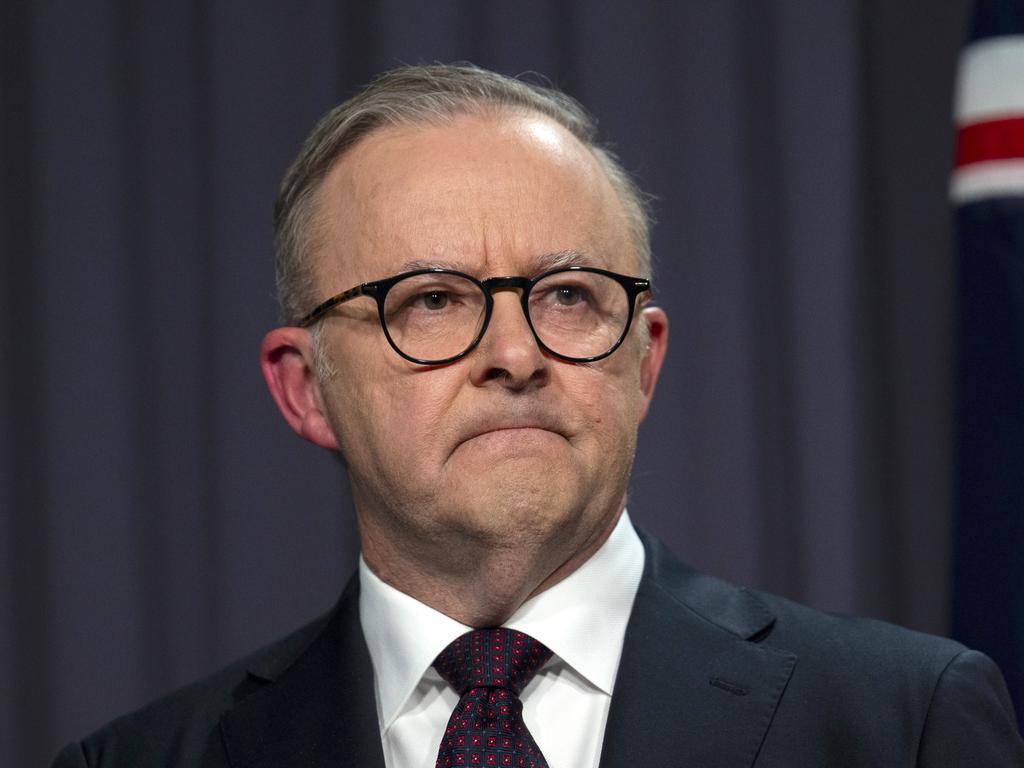
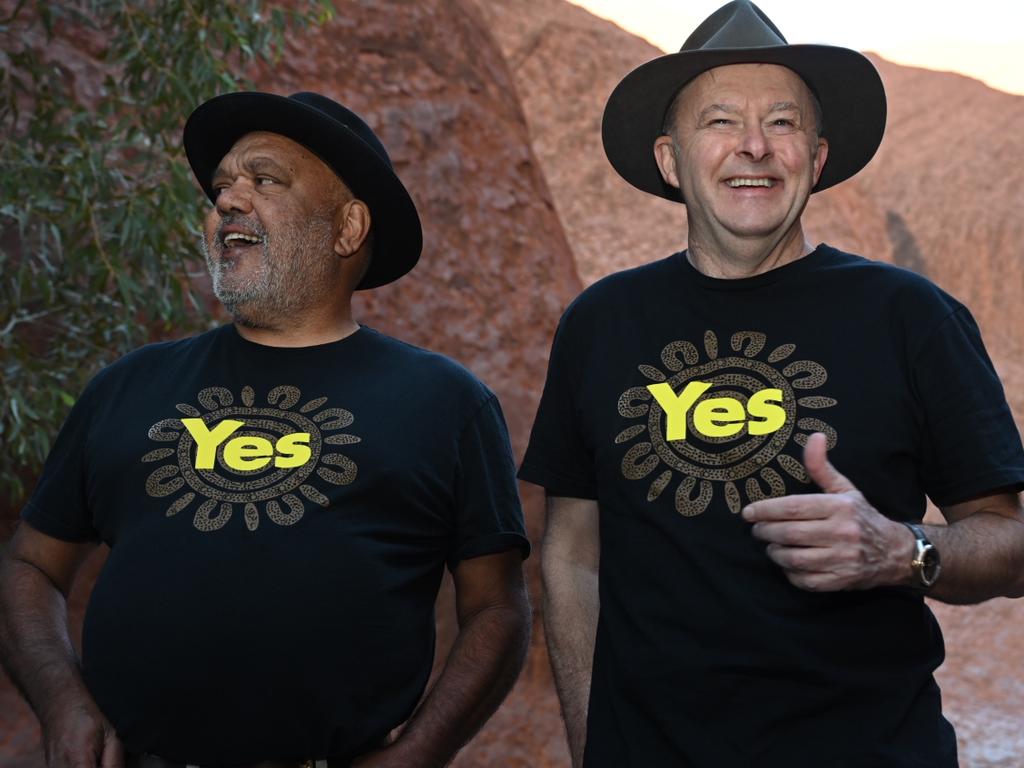
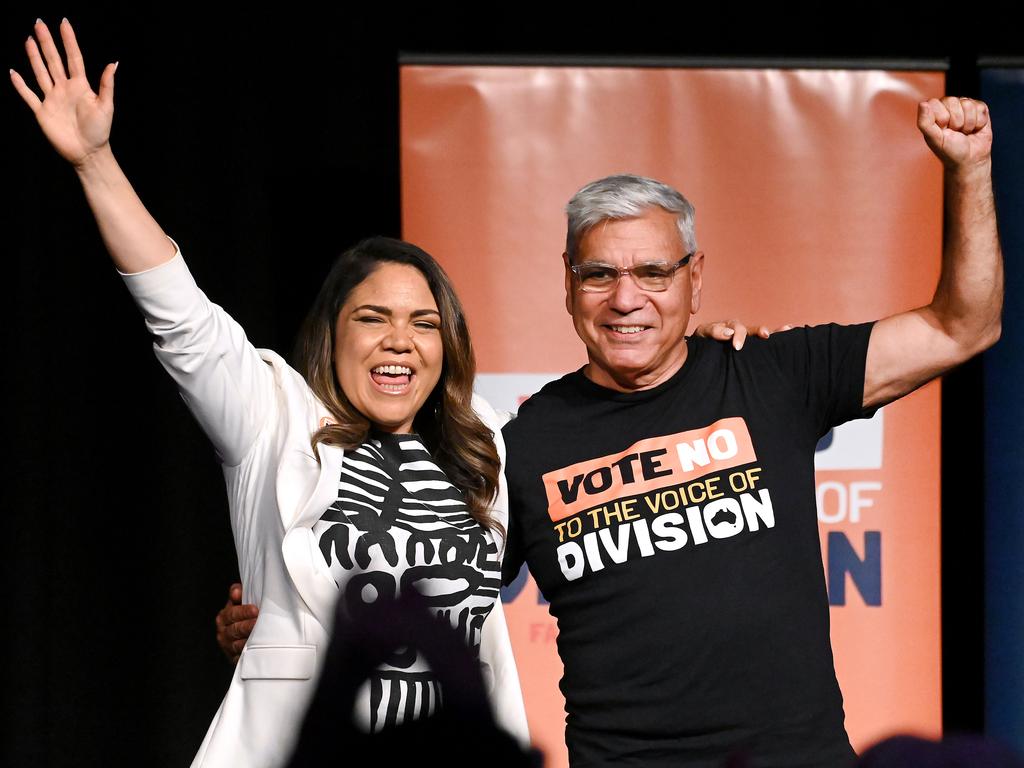


To join the conversation, please log in. Don't have an account? Register
Join the conversation, you are commenting as Logout